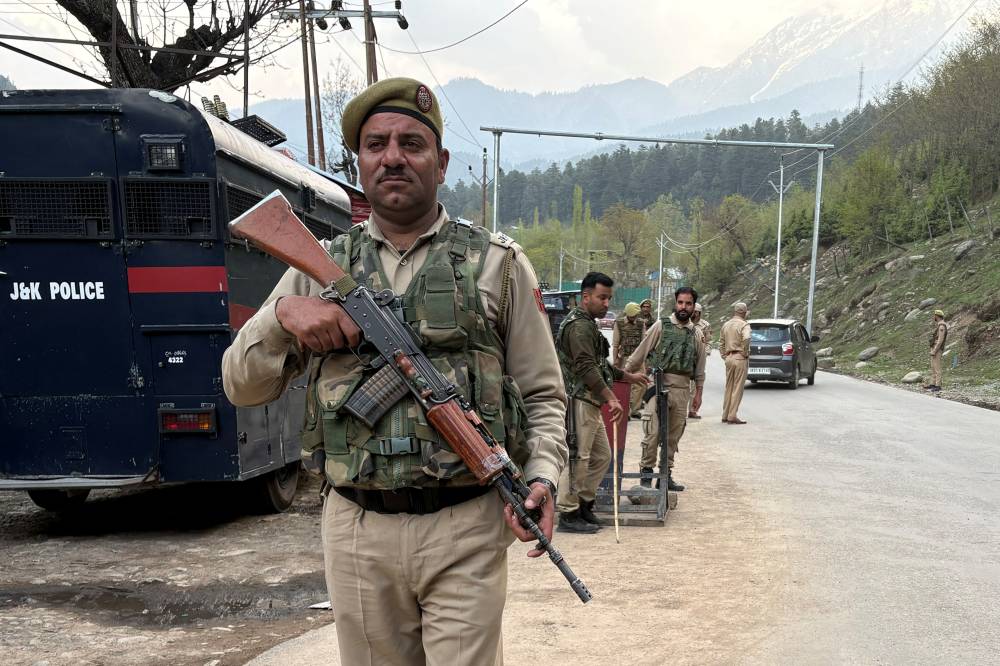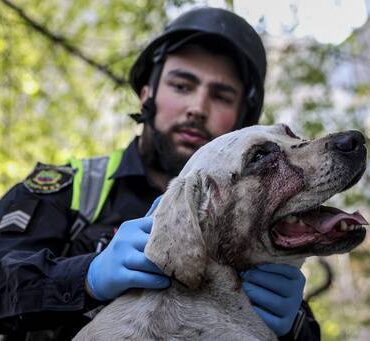26 killed in attack on tourists in Kashmir

SRINAGAR, India — Twenty-six people were killed and 17 were injured when suspected militants opened fire at tourists in India’s Jammu and Kashmir territory, police said on Wednesday, the worst such attack in the country in nearly two decades.
The attack took place on Tuesday in a meadow in the Pahalgam area of the scenic, Himalayan federal territory and the dead included 25 Indians and one Nepalese national, police said.
It was the worst attack on civilians in India since the 2008 Mumbai shootings, and shattered the relative calm in Kashmir, where tourism has boomed as an anti-India insurgency has waned in recent years.
Prime Minister Narendra Modi cut short his two-day visit to Saudi Arabia and returned to New Delhi on Wednesday morning. Finance Minister Nirmala Sitharaman was also cutting short her visit to the United States and Peru “to be with our people in this difficult and tragic time,” her ministry said.
Modi held a meeting with the national security adviser, the foreign minister and other senior officials at the airport and a special security cabinet meeting had been called for 0530 GMT, a defense ministry official said.
‘Kashmir Resistance’
A little-known militant group, the “Kashmir Resistance,” claimed responsibility for the attack in a social media message. It expressed discontent that more than 85,000 “outsiders” had been settled in the region, spurring a “demographic change.”
Indian security agencies say Kashmir Resistance is a front for Pakistan-based militant organizations such as Lashkar-e-Taiba and Hizbul Mujahideen. Pakistan has said it only provides moral and diplomatic support to the insurgency in Kashmir.
“We are concerned at the loss of tourists’ lives,” Pakistani foreign ministry spokesperson Shafqat Ali Khan said in a statement. “We extend our condolences to the near ones of the deceased and wish the injured a speedy recovery.”
On Wednesday, over a dozen local organizations called for a shutdown in the federal territory to protest against the attack on tourists, whose rising numbers have helped the local economy.
Many schools also suspended classes for the day in protest.
Tourists rush to return
Airlines were operating extra flights from Srinagar, the summer capital of the territory, as visitors were rushing out of the region, officials said.
The main highway connecting Srinagar to the rest of the country had been damaged by heavy rain and was shut for repairs, pushing up demand for flights, they said.
“As part of immediate relief measures, four special flights from Srinagar — two to Delhi and two to Mumbai — have been arranged, with additional flights kept on standby to cater to further evacuation needs,” a statement from Aviation Minister Rammohan Naidu Kinjarapu’s office said.
“Naidu also held an urgent meeting with all airline operators and… directed (them) to maintain regular fare levels, ensuring that no passenger is burdened during this sensitive time,” it said.
Militant violence has afflicted Muslim-majority Kashmir, claimed in full but ruled in part by both mostly Hindu India and Islamic Pakistan, since the anti-Indian insurgency began in 1989. Tens of thousands of people have been killed, although violence has tapered off in recent years.
India revoked Kashmir’s special status in 2019, splitting the state into two federally administered territories — Jammu and Kashmir, and Ladakh. The move allowed local authorities to issue domicile rights to outsiders, allowing them to get jobs and buy land in the territory.
That led to a deterioration of ties with Pakistan, which also claims the region. The dispute has spurred bitter animosity and military conflict between the nuclear-armed neighbors.
Attacks targeting tourists in Kashmir have been rare. The last deadly incident took place in June 2024 when at least nine people were killed and 33 injured after a militant attack caused a bus carrying Hindu pilgrims to plunge into a deep gorge.
Reuters, the news and media division of Thomson Reuters, is the world’s largest multimedia news provider, reaching billions of people worldwide every day. Reuters provides business, financial, national and international news to professionals via desktop terminals, the world's media organizations, industry events and directly to consumers.

















